
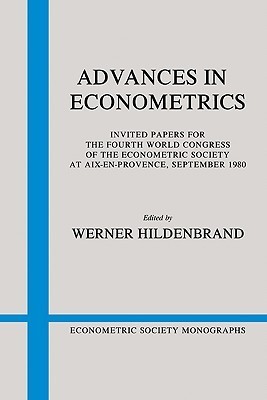
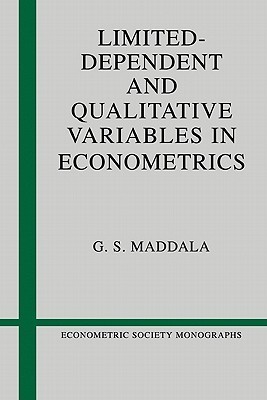
Books in series

Advances in Economic Theory
Fourth World Congress
1983

Advances in Econometrics
Fourth World Congress
1983

Limited-Dependent and Qualitative Variables in Econometrics
1983
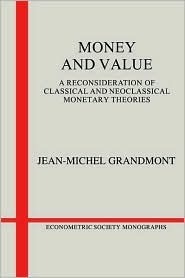
Money and Value
A Reconsideration of Classical and Neoclassical Monetary Economics
1983
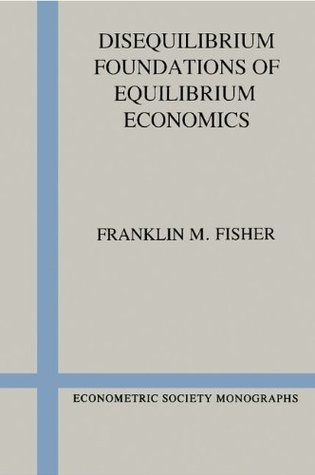
Disequilibrium Foundations of Equilibrium Economics
1983
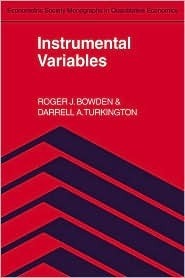
Instrumental Variables
1985
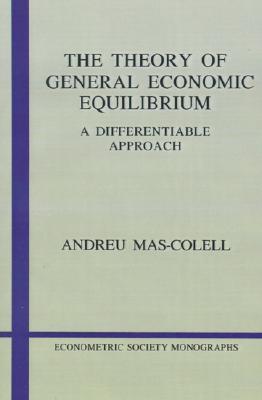
The Theory of General Economic Equilibrium
A Differentiable Approach
1985
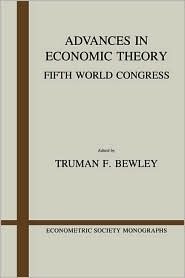
Advances in Economic Theory
Fifth World Congress
1987
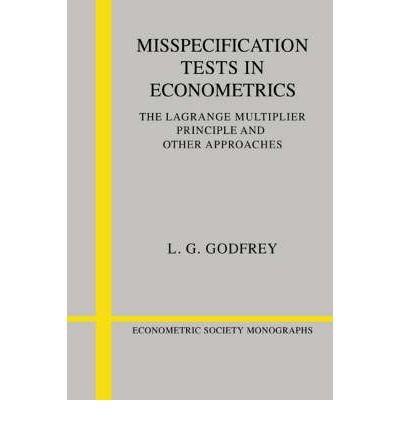
[(Misspecification Tests in Econometrics
The Lagrange Multiplier Principle and Other Approaches )] [Author: L. G. Godfrey] [Apr-2005]
1988

Two-Sided Matching
A Study in Game-Theoretic Modeling and Analysis
1990
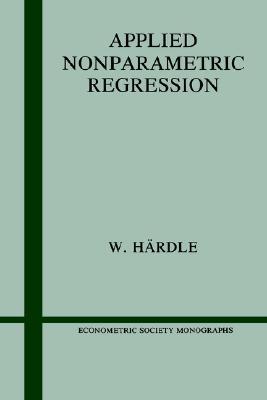
Applied Nonparametric Regression
1990
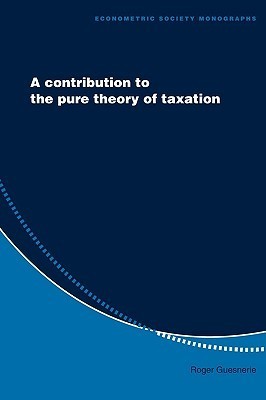
A Contribution to the Pure Theory of Taxation
1994

Frontiers of Research in Economic Theory
The Nancy L. Schwartz Memorial Lectures, 1983-1997 (Econometric Society Monographs)
1998
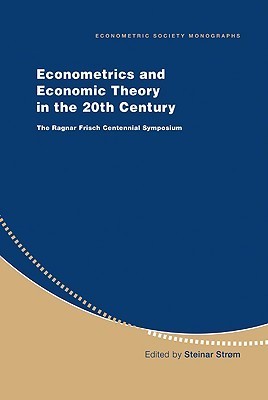
Econometrics and Economic Theory in the 20th Century
The Ragnar Frisch Centennial Symposium
1999

Analysis of Panel Data
1986

Advances in Economics and Econometrics
Theory and Applications, Eighth World Congress, Volume I
1999
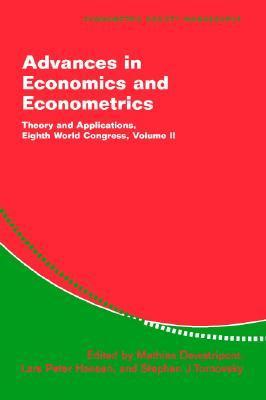
Advances in Economics and Econometrics
Theory and Applications, Eighth World Congress, Volume II
1999

Advances in Economics and Econometrics
Theory and Applications, Eighth World Congress, Volume III
1999
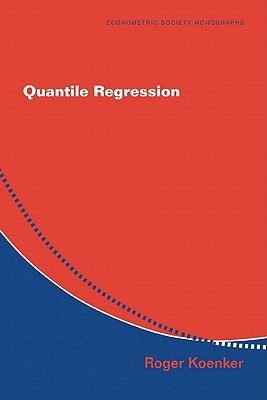
Quantile Regression
2001

Population Issues in Social Choice Theory, Welfare Economics, and Ethics
2005
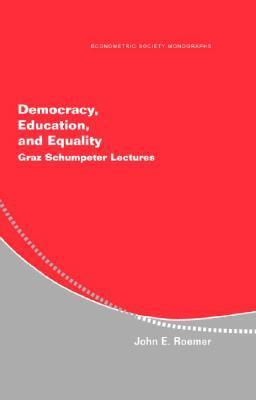
Democracy, Education, and Equality
Graz-Schumpeter Lectures
2006

Advances in Economics and Econometrics (Econometric Society Monographs, Series Number 41)
2006

Complex Social Networks
2006

Theory of Decision under Uncertainty
2009
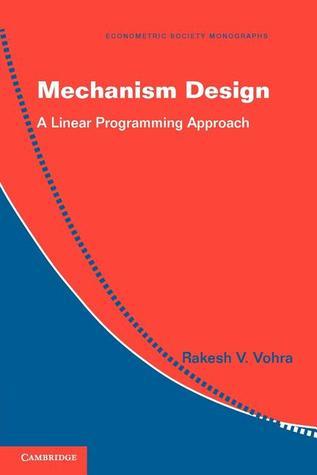
Mechanism Design
A Linear Programming Approach
2011

A Theory of Fairness and Social Welfare
2011
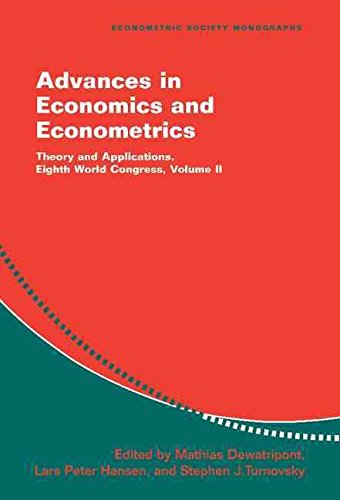
[(Advances in Economics and Econometrics
v. 2 : Theory and Applications, Eighth World Congress)] [Edited by Mathias Dewatripont ] published on
2013
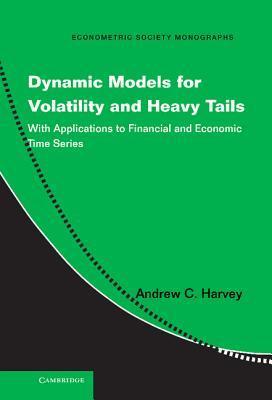
Dynamic Models for Volatility and Heavy Tails
With Applications to Financial and Economic Time Series
2013

Repeated Games
2014

Revealed Preference Theory
2015
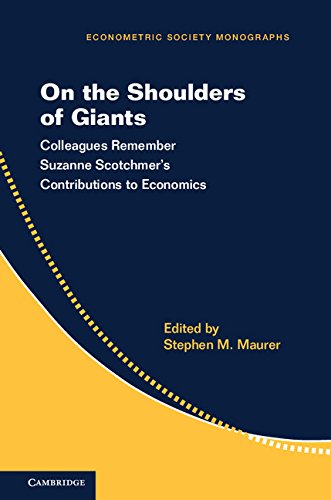
On the Shoulders of Giants
Colleagues Remember Suzanne Scotchmer's Contributions to Economics
2017

Random Sets in Econometrics
2018

Ignorance and Uncertainty
2018

How to Divide When There Isn't Enough
From Aristotle, the Talmud, and Maimonides to the Axiomatics of Resource Allocation
2019
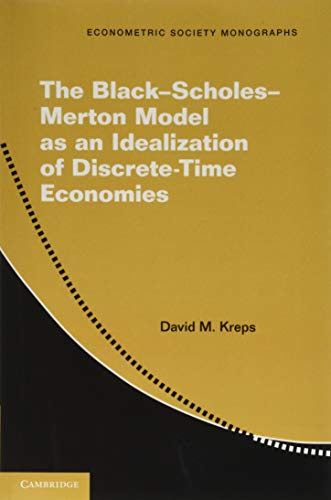
The Black–Scholes–Merton Model as an Idealization of Discrete-Time Economies
2019
Authors


Itzhak Gilboa works in decision theory and other fields in economic theory such as game theory and social choice. His main interest is in decision under uncertainty, focusing on the definition of probability, notions of rationality, non-Bayesian decision models, and related issues. He is Professor at Eitan Berglas School of Economics, Tel-Aviv University and Professor of Economics and Decision Sciences, HEC, Paris, as well as Fellow of the Cowles Foundation for Research in Economics, Yale University (part time).

(form personal webpage) Andreu Mas-Colell is Professor of Economics (Catedrático) at the Universitat Pompeu Fabra, Barcelona, Spain (currently on leave). Formerly he was Professor of Economics at Harvard University (1981-96), Professor of Economics and Mathematics at the University of California, Berkeley (1972-80) and Chairman of the Barcelona Graduate School of Economics (2006-2010). He holds Honoris Causa Doctorates from the universities of Alacant, Toulouse, HEC (Paris) and Universidad Nacional del Sur (Argentina). He has received the Rey Juan Carlos I Prize in Economics (1988), the Pascual Madoz (National Research Prize), (2006) and the Premio Fundación BBVA Fronteras del Conocimiento en Economía, Finanzas y Gestión de Empresas -shared with H. Sonnenschein- (2009). He has served as main Editor of the Journal of Mathematical Economics (1985-88), and of Econometrica (1988-92). Professor Mas-Colell is a Fellow of the Econometric Society and was its President in 1993. In 1997 he was elected Foreign Associate to the US National Academy of Sciences and Foreign Honorary Member of the American Economic Association. He has been a Sloan Fellow (1978-1980) and Guggenheim Fellow (1985-1986). Also from 1999 to 2005 he was a member of the Executive Committee of the International Economic Association. In the year 2006 he served as President of the European Economic Association. From 2000 to 2003 he was Minister for Universities and Research of the Government of Catalonia and President of the Advisory Scientific Committee of Telefónica Investigación y Desarrollo (2005-2008). He has been General Secretary of the European Research Council from July 2009 to August 2010. At present he is Minister of Economy and Knowledge of the Government of Catalonia (from December 2010). A. Mas-Colell has written some 100 research papers on subjects ranging from abstract general equilibrium theory and the structure of financial markets to pricing policy for public firms. He is the author of The Theory of General Economic Equilibrium: A Differentiable Approach (Cambridge University Press, 1985) and co-author with M. Whinston and J. Green, of the graduate textbook Microeconomic Theory (Oxford University Press, 1994).

Professor Vohra is a leading global expert in mechanism design; an innovative area of game theory that brings together economics, engineering, and computer science. His economics research in mechanism design focuses on the best ways to allocate scarce resources when the information required to make the allocation is dispersed and privately held, an increasingly common condition in present-day environments. His work has been critical to the development of game, auction, and pricing theory—for example, the keyword auctions central to online search engines—and spans such areas as operations research, market systems, and optimal pricing mechanisms. He formerly taught at Northwestern University, where he was the John L. and Helen Kellogg Professor of Managerial Economics and Decision Sciences in the Kellogg School of Management, with additional appointments in the Department of Economics and the Department of Electrical Engineering and Computer Science. He taught from 1985 to 1998 in the Fisher College of Business at Ohio State University. He earned a Ph.D. in mathematics in 1985 from the University of Maryland, an M.Sc. in operational research in 1981 from the London School of Economics and a B.Sc. (Hon.) in mathematics in 1980 from University College London. He came to Penn as part of the Penn Integrates Knowledge program, that President Amy Gutmann established in 2005, as a University-wide initiative to recruit exceptional faculty members whose research and teaching exemplify the integration of knowledge across disciplines. His appointment is shared with the Department of Electrical and Systems Engineering in the School of Engineering and Applied Science.

Alvin Elliot Roth (born December 18, 1951) is an American academician personality, he is the Craig and Susan McCaw professor of economics at Stanford University and the Gund professor of economics and business administration emeritus at Harvard University. Roth has made significant contributions to the fields of game theory, market design and experimental economics, and is known for his emphasis on applying economic theory to solutions for "real-world" problems. In 2012, he won the Nobel Memorial Prize in Economic Sciences jointly with Lloyd Shapley "for the theory of stable allocations and the practice of market design".

